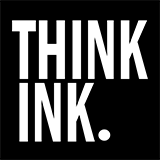Beyond the Talking Points: ThinkInk’s Top Interview-Prep Tips
Feb 23, 2016 / By Vanessa Horwell
Many years in B2B PR have taught the ThinkInk team some valuable lessons – especially about what to expect when media opportunities arise. We try to avoid making generalizations about our clients and their tendencies… but when we see similar patterns over and over again, we absorb them into our understanding of how best to serve our clients. One of those patterns is far too common. In our experience, B2B executives do not like preparing for a press interview.
We understand the common reasons why. C-level professionals and senior managers are busy, and they’re experienced. They already know their industries and their companies’ products, services, technologies, or other offerings like the backs of their hands. Especially if they helped found or launch their ventures, B2B executives can speak for hours on end about what their solutions do, how they were built, and how they serve their target market.
But here’s the thing: That doesn’t mean they can speak for hours on end in a manner that will captivate a reporter’s interest (and motivate that reporter to write about our clients’ products or companies in a compelling way). Every media interview presents an opportunity for executives to tell their “corporate story” or communicate their solutions’ unique value in a new way – an opportunity that’s well worth preparing for. Here are our tips on doing that well.
Consider the Context
Especially if they’re seasoned presenters or regulars on the industry speaking circuit, executives often “go rote” when talking to reporters: They jump on the call and dive straight into their most commonly deployed themes and talking points, no matter the publication or journalist they’re speaking to.
That creates obvious issues. A reporter for an industry trade publication will have a different background and level of understanding about a given sector, market problem, or technology than one who writes for a national media outlet. Taking time to understand the context of the interview – including why the reporter chose to speak to you, what the angle of the story may be, and what the publication and reporter typically cover – is key to ensuring that the right message is conveyed.
Adapt to Thrive
Armed with an awareness of the context, interviewees must modify their approach to the situation at hand. The most important part of that – at least for B2B executives – is to be mindful of jargon and technical language: Trade media pros and beat reporters who are well versed in your industry may be receptive to sector-specific terminology, but others decidedly won’t be.
Adapting doesn’t have to be about “dumbing down” the message (although sometimes that doesn’t hurt). It’s more important to tailor one’s overall communication style, tone, and language to the particulars of the interview at hand.
Be Ready to Converse (not just Communicate)
Whereas bylined articles and other thought leadership pieces allow B2B executives to communicate their thoughts in a direct author-to-audience way, interviews are a two-way street. As such, they’re about more than just delivering a message – they’re about engaging in a productive conversation.
Productive for both parties, that is. By extending interview opportunities to executives, reporters are (in part) giving those executives a chance to convince them there’s a story worth telling. Opening up new lines of dialogue over the course of a conversation – by asking the reporter questions or bringing up new ideas and related topics – can help persuade them.
Heed Our Advice!
Unfortunately, the reason we know executives don’t like preparing for interviews is that so often we provide them with a wealth of tools, input, and resources to help them do that... but they don’t take us up on it. That can create issues for all parties involved: If the interview goes poorly because the executive didn’t prepare well enough, the press opportunity falls through – making everyone involved feel their time was wasted.
So the best interview-preparation advice we can give is to take interview-preparation advice! Read the prep docs and talking points, take your PR team up on it if they suggest a Q&A style run-through, and invest the time in media training when suggested – it can provide a lot of value in the long term.
And ultimately, that’s the lesson we want to impart to clients: We know that B2B executives understand their industries and products better than anyone, but we understand the B2B media better than anyone. A PR agency’s job is to help its clients make the most of any media opportunity. The smartest move for B2B executives is to let them!
Sign up for our insights on the convergence of business and PR





